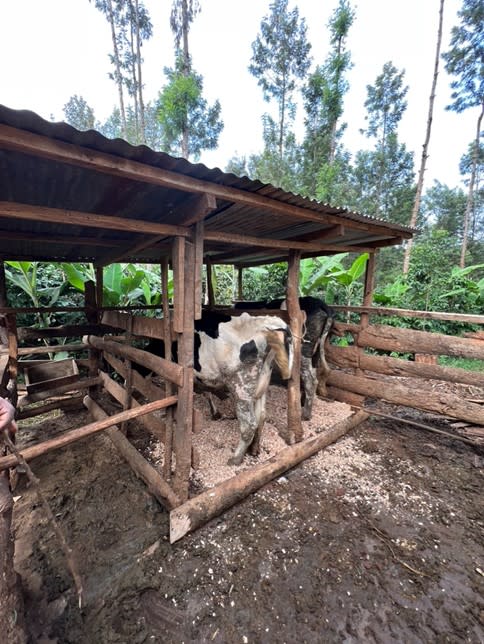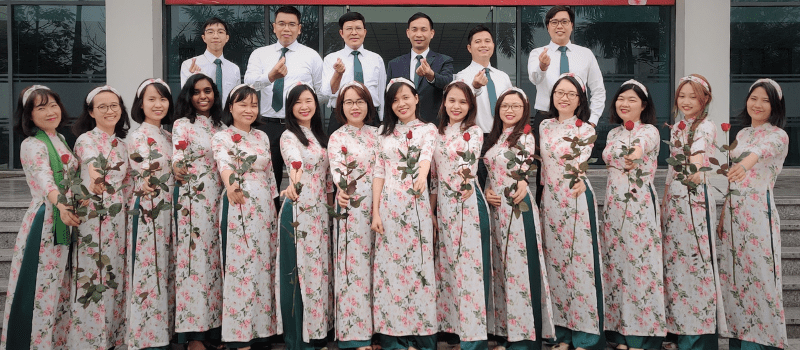This blog was contributed by Priscillah Ndung’u, a VWB/VSF volunteer.
Margaret David is a happy farmer from the Nkandone society of Meru Dairy Union. She is a proud farmer after benefiting from Veterinarians With Borders/Vétérinaires Sans Frontières Canada's (VWB/VSF) Volunteer Engaged in Gender Responsive Technical Solutions (VETS) project. The principal objective of the VETS project is to support poverty reduction by improving the livelihoods of small-scale farmers, particularly enlightening women and girls to support and sustain their families and also conserve the environment.
Margaret, being one of the hardworking farmers from her society, was selected as one of the Community One Health Champions (COHC) by Meru Dairy, since she has the potential. This gave her an opportunity to gain knowledge on good dairy practices, meet and interact with other farmers, share her experiences, and learn from them. In turn, she has shared the knowledge gained with neighbours and other dairy farmers from her society. Through the VETS project, she was able to acquire knowledge and skills, which incorporated the One Health Approach. Margaret had an opportunity to attend and listen to all the trainings offered by the VWB/VSF volunteers, which included calf rearing and housing, dry cow management, feeding a lactating cow, reproduction, and financial management among others. According to her, this was the first time having specialists at her farm where she was advised on various areas. She was very excited and started implementing her learnings.

During the sessions, her cow was in-calf. After, she implemented and used the effectiveness of the project as an opportunity for improvement. She started steaming up her cow for more milk production and healthier calves. Before the training, she used to house calves with goats, did not provide water to her calves, and also forage fed them at early ages, before two months. Margaret built a new calf pen with a raised floor for the first time, which is more comfortable and easier to clean. She said that, often, her calves used to die within the first three months after they were born. She happily said that her calf looks healthier and the cow increased from 7l – 10 litres of milk after implementing the knowledge she acquired.
A VWB/VSF Gender Specialist trained her and her family members about the importance of sharing duties and responsibilities in her farm. This helped them in working as a couple, managing finances and resources. They have been able to start additional businesses from their milk proceeds, like rearing pigs and chickens, which she sells especially to the members of the women groups she is in. This has increased their household income, hence improving their living standards.
Being a COHC, Margaret has become a model to her community. She has shared her knowledge to her community, influencing other farmers for their benefit.
Interested in volunteering abroad with VWB/VSF? Learn about our current opportunities.




